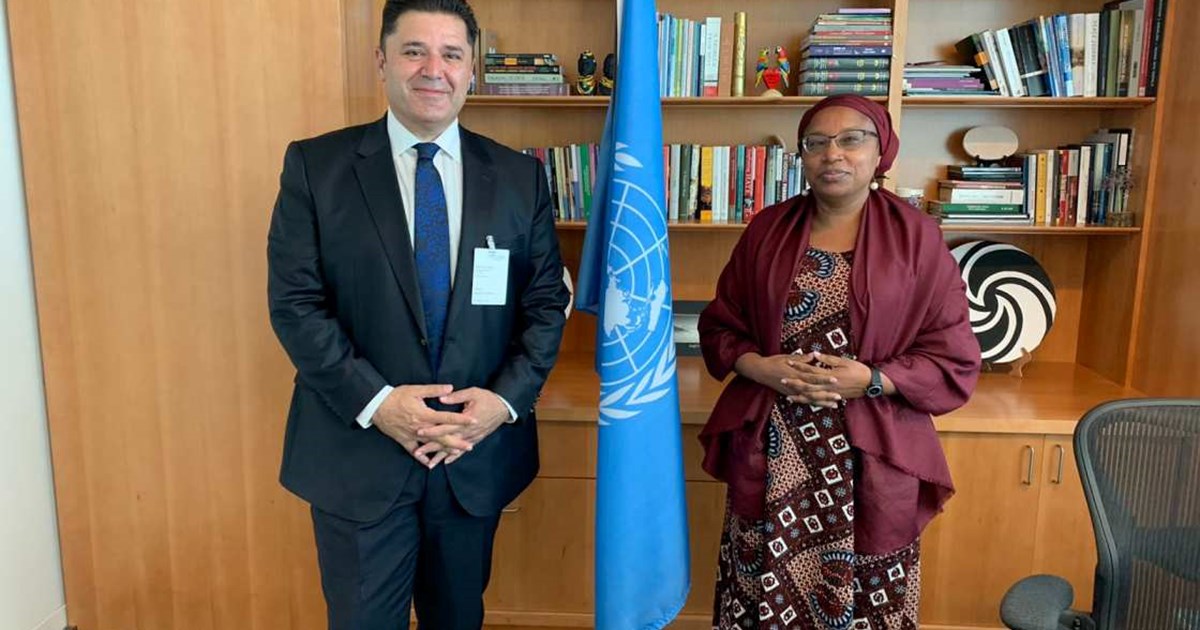Head of OCIA meets Under Secretary-General and the Special Advisor of the UNSG for the Elimination of Genocide

Erbil, Kurdistan Region, Iraq (GOV.KRD)- The Head of the Office of Coordination for International Advocacy, Dr.Dindar Zebari on Wednesday met with Ms. Alice Nderitu, the Under-Secretary-General and the Special Advisor of the UN Secretary General for the Elimination of Genocide.
The KRG Coordinator highlighted the crimes committed against the Kurdish people and said: The Kurdistan Region has made a heavy sacrifice in the fight against terrorism. Peshmerga forces displayed unprecedented resilience and and bravery in repelling ISIS's expansionism".
In another part of the meeting, Zebari pointed to the inclusion of genocide in Iraqi domestic laws and illustrated that Iraq is a member of the International Convention on the Elimination of Genocide, and this should be reflected in Iraqi domestic laws. Ethnic and religious groups invariably faced extermination and massacres that falls under the category of crimes against humanity, war crimes and genocide.
Adherence to human rights principles was a topic of discussion between the KRG Coordinator for International Advocacy and the UN Secretary-General's Special Adviser on the Elimination of Genocide. In this regard, the former explained that the approval of the Regional Plan for Human Rights by the Prime Minister shows the determination of the Kurdistan Regional Government to protect human rights principles, individual and collection freedoms. In this regard, we dedicated a section of the plan that to genocide and international crimes.
Dr. Dindar Zebari told Ms. Alice that the Kurdistan Regional Government is determined to assist the UNITAD team and establishing a court to try ISIS terrorists. On the other hand, it was emphasized that the Kurdistan Regional Government should actively participate in international conferences and meetings on genocide, because it was a major target for ISIS atrocities.
On the return of IDPs to their places of origin, it has been stressed that the presence of militias and foreign armed forces in Sinjar, assaults by ISIS sleeper cells and the lack of necessary services are the main reasons for the refugees not to return to their homes.
For her part, the Assistant of the Special Adviser to the UN Secretary-General on the Elimination of Genocide, said that she visited the Kurdistan Region, Sinjar and its surroundings in the past and saw the volatile and fragile situation in the area.
